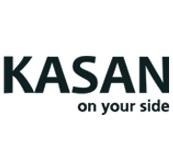부정경쟁방지 및 영업비밀보호에 관한 법률 개정법 제2조 제1호 차목 조항 단서내용검토
신설 차목의 단서 내용: “다만, 아이디어를 제공받은 자가 제공받을 당시 이미 그 아이디어를 알고 있었거나 그 아이디어가 동종 업계에서 널리 알려진 경우에는 그러하지 아니하다.”
1. 영업비밀의 비밀성 요건과 전혀 다른 내용임
부정경쟁방지 및 영업비밀보호에 관한 법률상 영업비밀로 보호받기 위해서는 “공연히 알려져 있지 아니 한” 정보이어야 합니다. 여기서 ‘공연히 알려져 있지 아니하다’는 것은 그 정보가 간행물 등의 매체에 실리는 등 불특정 다수인에게 알려져 있지 않기때문에 보유자를 통하지 아니 하고는 그 정보를 통상 입수할 수 없는 것을 말”합니다(대법원 2008. 7. 10. 선고 2008도3435 판결).
그 장소는 국내 또는 국외를 불문합니다. 법원은 “국내에서 사용된 바 없다고 할지라도 국외에서 이미 공개나 사용됨으로써 그 아이디어의 경제적 가치를 얻을 수 있는자에게 알려져 있는 상태”는 영업비밀이 아니라고 판시하였습니다(서울고등법원 1998. 7. 21. 선고 97나15229 판결).
신설 차목 부정경쟁행위의 보호대상 아이디어는 위와 같은 영업비밀의 비밀성을 요건으로 하지 않습니다. 전혀 다른 각도에서 그 적용대상을 정하고 있습니다. 즉, 아이디어를 제공받은 자가 제공받을 당시 이미 그 아이디어를 알고 있었다면, 그 아이디어가 영업비밀인지 여부에 상관없이 차목을 적용할 수 없습니다. 다시 말하면 다수가 알고 있더라도 공연히 알려져 있지 않다면 영업비밀이 성립되는데, 이와 같은 영업비밀 정보인 경우에도 아이디어를 제공받은 자가 알고 있었다면 차목의 부정경쟁행위에 해당하지 않습니다. 공연히 알려져 있지 않더라도 당사자는 이미 알고 있었는지 여부에 따라 달라집니다. 결국 아이디어를 제공받을 당시 이미 그 아이디어를 알고 있었다는 사실의 입증여부가 실무상 핵심 포인트가 될 것입니다. 영업비밀이 아닌 경우에도 마찬가지입니다.
다음으로, 아이디어를 제공받은 자가 제공받을 당시 그 아이디어가 동종 업계에서 널리 알려진 경우에는 신설 차목이 적용될 수 없습니다. 여기서 다시 한번 영업비밀 성립요건 중 “공연히 알려져 있지 아니한”이란 요건과는 그 구체적 문언이 다르다는 점에 주목해야 할 것입니다. ”동종 업계에서 널리 알려진 경우”는 불특정 다수인이 실제 알고 있거나 알 수 있었으면 충족되는 “공연히 알려진 상태”와 같지 않습니다. 차목에서는 그 알려진 대상의 범위가 동종 업계로 한정될 뿐만 아니라 그 공지수준이 “널리 알려진 경우”로 훨씬 엄격한 기준을 충족해야 합니다.
예를 들어 분쟁이 발생한 후 전세계 기술자료를 조사해보았더니 우리나라에서는 거의 보지 않는 희귀한 외국자료 중에 그 내용이 기재되어 있는 경우를 상정하면, 우리나라 사람이 아니더라도 누군가 그 간행물에 기재된 내용을 볼 수 있기 때문에(소위 불특정 다수인이 그 내용을 알 수 있는 가능성이 있으므로), 해당 정보는 영업비밀의 비밀성을 인정할 수 없습니다. 그러나, 그 정보내용이 동종 업계에 널리 알려진 경우로는 볼 수 없다는 점이 분명하므로 이와 같은 경우는 신설 차목의 단서조항에 해당하지 않습니다.
2. 영업비밀과 비교할 때 그 적용범위가 훨씬 광범위할 것임
신설 차목에서는 비밀관리성을 적용요건으로 요구하지 않습니다. 뿐만 아니라 영업비밀의 비밀성 요건을 충족하지 못하는 경우에도 적용될 수 있습니다. 실무상 영업비밀보호를 구하는 많은 사례에서 정보보유자가 비밀관리 미비를 이유로 법적보호에 성공하지 못합니다. 또한 본인이 최초 개발한 기술이나 사업 아이디어로 믿었으나 상대방이 전세계 관련 자료를 모두 조사해서 유사한 내용을 발견하면 비밀성 상실을 이유로 법적보호에 실패하는 경우도 종종 있습니다.
신설된 차목은 위와 같은 영업비밀 불인정 상황에서도 부정경쟁행위로 보기 때문에 법적보호가 가능합니다. 형사처벌 조항을 제외하고 나머지 민사상 구제수단을 영업비밀 보호제도와 동일합니다. 반대로 아이디어를 제공받은 측에서는 그만큼 법적 리스크가 증대된 것입니다.













